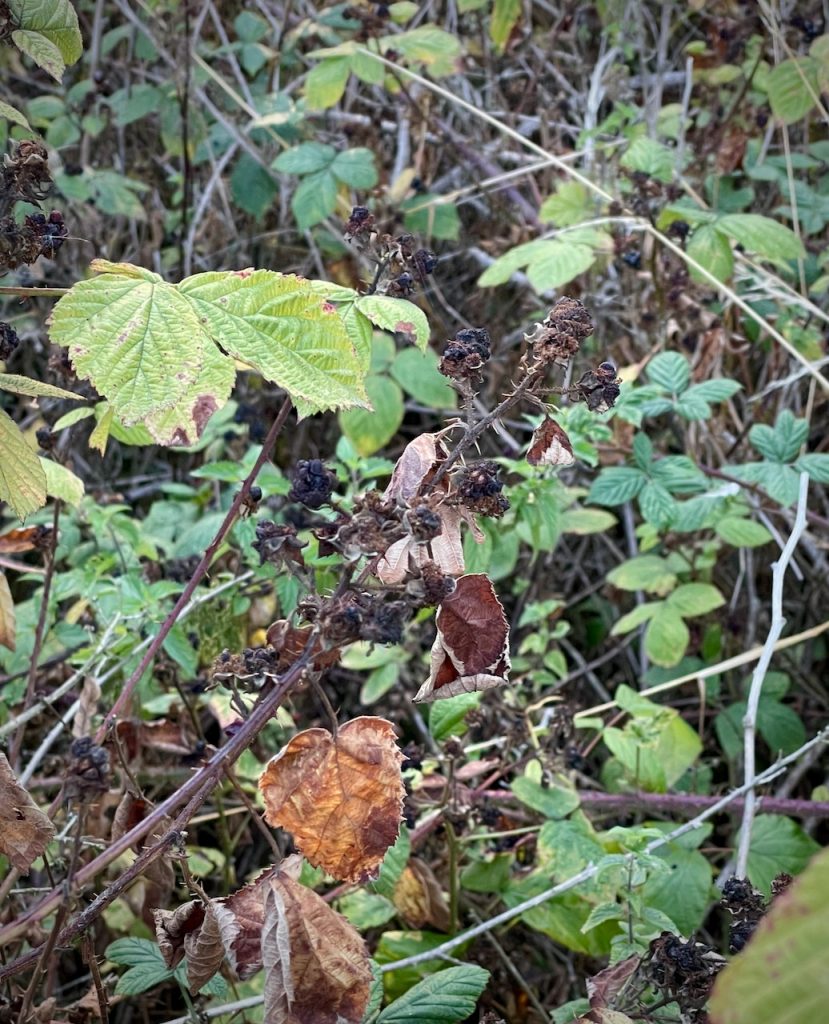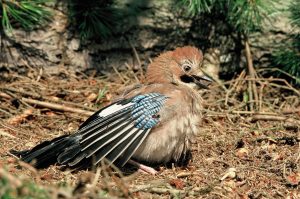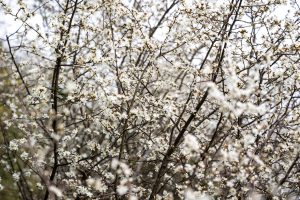False autumn - a problem for wildlife
Over the past few weeks, I've read the phrase false autumn many times on news and environmental websites and recently saw its impact in my local area. As the name suggests, a false autumn is due to trees and vegetation becoming stressed due to the high temperatures and the lack of rainwater. Trees, in particular, have gone into survival mode to offset the harsh conditions we've all had to endure this summer; as a result, trees are getting ready for autumn early.
According to the Royal Horticultural Society's senior horticultural advisor, Leigh Hunt, 'the trees are taking on the appearance of autumn, but daylight hours are still too long for the process to start in earnest.' He says, "in all his 45 years, this is one of the most severe years he's seen in terms of damage to trees in the countryside."
The Woodland Trust's Fritha West blogged recently that reports of ripe blackberries were received on the 28th of June, the earliest date ever recorded on the Nature's Calendar. She goes on to say, "intricate food chains are disrupted as hot weather also affects insect populations and dries up the soil. Birds that eat invertebrates struggle to find food."
But what brought this home to me recently was the sight of berries dried up a shrivelled on the bushes and brambles locally. Normally these areas are a haven for wildlife and prove to be a magnet for birds who feed up before winter, migration or both. This year they will struggle to make use of what's on offer. The questions are, what will the birds do to overcome this problem, and what will this impact on numbers? Chances are, the already dire situation for some birds will get a lot more difficult over the coming months.
It would seem that we will not be alone in struggling this winter, and with household budgets being stretched, some may question their ability to provide supplementary feeding - just at the time when the birds need it most. The high temperatures have impacted the number of insects on offer, which might well result in a fall in the numbers in second broods. Worms will also stay further underground. Ground that is already baked and hard for the likes of the blackbirds and robins to sift through.
Sadly the immediate future for bird numbers doesn't look too rosy. It is reasonable to suspect that next year's insect numbers will decrease, a trend seen after past droughts. The result could hit brood numbers during next year's breeding season.
We can, of course, do our bit to help. As most readers will have been doing throughout the hot weather, putting water out is essential. And let's hope we see some decent rainfall soon to help replenish ponds, streams and even the reservoirs. Until then, it is down to us. Food, too, is likely to become even more essential to help build up the bird's strength and help them through the winter months. In some ways, our help has never been more important, just as much as it is during the harshest of winters.
Sorry to end on a negative note, but it would seem that we are likely to see more of these periods of drought in the years to come. As a result, our help will continue to be needed in the years to come.
© Phil Pickin
According to the Royal Horticultural Society's senior horticultural advisor, Leigh Hunt, 'the trees are taking on the appearance of autumn, but daylight hours are still too long for the process to start in earnest.' He says, "in all his 45 years, this is one of the most severe years he's seen in terms of damage to trees in the countryside."
The Woodland Trust's Fritha West blogged recently that reports of ripe blackberries were received on the 28th of June, the earliest date ever recorded on the Nature's Calendar. She goes on to say, "intricate food chains are disrupted as hot weather also affects insect populations and dries up the soil. Birds that eat invertebrates struggle to find food."
But what brought this home to me recently was the sight of berries dried up a shrivelled on the bushes and brambles locally. Normally these areas are a haven for wildlife and prove to be a magnet for birds who feed up before winter, migration or both. This year they will struggle to make use of what's on offer. The questions are, what will the birds do to overcome this problem, and what will this impact on numbers? Chances are, the already dire situation for some birds will get a lot more difficult over the coming months.
It would seem that we will not be alone in struggling this winter, and with household budgets being stretched, some may question their ability to provide supplementary feeding - just at the time when the birds need it most. The high temperatures have impacted the number of insects on offer, which might well result in a fall in the numbers in second broods. Worms will also stay further underground. Ground that is already baked and hard for the likes of the blackbirds and robins to sift through.
Sadly the immediate future for bird numbers doesn't look too rosy. It is reasonable to suspect that next year's insect numbers will decrease, a trend seen after past droughts. The result could hit brood numbers during next year's breeding season.
We can, of course, do our bit to help. As most readers will have been doing throughout the hot weather, putting water out is essential. And let's hope we see some decent rainfall soon to help replenish ponds, streams and even the reservoirs. Until then, it is down to us. Food, too, is likely to become even more essential to help build up the bird's strength and help them through the winter months. In some ways, our help has never been more important, just as much as it is during the harshest of winters.
Sorry to end on a negative note, but it would seem that we are likely to see more of these periods of drought in the years to come. As a result, our help will continue to be needed in the years to come.
© Phil Pickin



